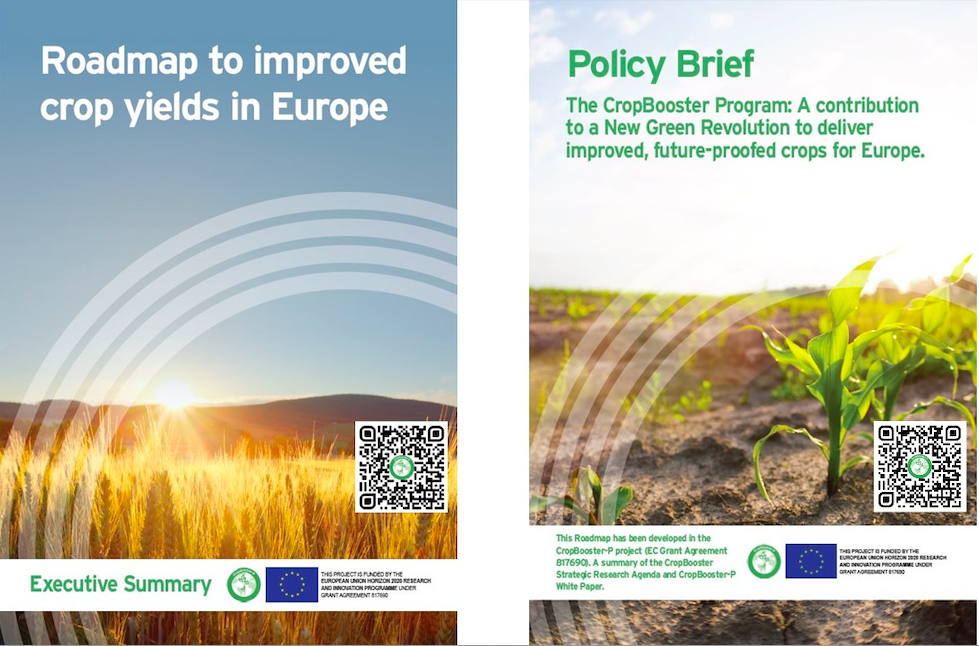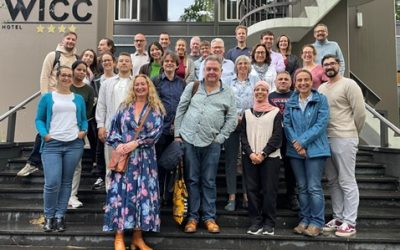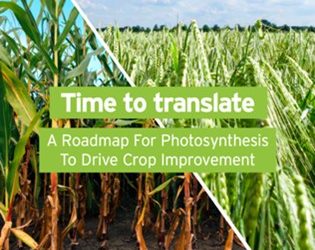
CropBooster-P and CAPITALISE can be considered “sister projects” as both resulted from discussions early 2016 between representatives from Wageningen University & Research (WUR) and the European Commission. These discussions centered around the question how the Commission could support the Photosynthesis 2.0 Initiative that had been, by then, just launched by a broad consortium of European research institutes and universities.
Although the idea of launching a large research program on photosynthesis was received rather well by the Commission, as a first step we were requested to draft a more detailed plan stipulating how increasing photosynthesis could lead to more sustainable and resilient crop yield in Europe. For this purpose, a specific call for a Coordination and Support Action (CSA) was launched in the Horizon 2020 program with the title “Future proofing our plants”. Leading a consortium of 16 parties, WUR responded to this call with the CropBooster-P proposal, which was subsequently granted by the Commission end of 2018. But also, the Commission decided to already start-up part of the research proposed in the Photosynthesis 2.0 Initiative, which resulted in yet another call in Horizon 2020 leading eventually to the CAPITALISE project.
The ultimate goal of the CropBooster-P project was to draft for the Commission a roadmap “to future proof our crops”. The project focused on four main questions; how can we increase crop yield? How can we harness crops against the negative effects of climate change (= abiotic stress resistance)? How can we increase crop sustainability (= resource use efficiency)? And how can we increase crop nutritional quality? Next to these main issues, the project also set out to map the preferences of various stakeholders in society, and to develop a blueprint of the structure and organization of a future research program to execute the research agenda of the roadmap.
The CropBooster-P project consisted of 5 work packages looking into various aspects of the roadmap plus 1 work package to manage the project itself. In WP1, an inventory was made of the current scientific and technical options to increase crop yield, sustainability, resource use efficiency and quality by plant breeding. Also, in this work package four different scenarios of future social and scientific developments were designed, each of which requiring a different strategy for crop improvement.
In WP2, an assessment was made of the needs and expectations of professional stakeholders in the agri-food chain. For this, surveys and workshops were organized with farmers, industry, scientists and consumer organizations resulting in a good overview of the particular priorities of these stakeholders regarding future proofing of crops.
WP3 had a focus on interacting with society at large, e.g. “the man in the street” and set out to map societal needs and expectations. This was done by launching surveys and by organizing workshops and “Citizen Juries” in which non-professional stakeholders could give their opinion about matters like agriculture, food production and application of modern breeding technology. Based on the outcome of this, the work package also designed a communication strategy to be used in a foreseen future research program.
Based on the inventory of scientific options made in WP1 and the preferences of professional stakeholders mapped in WP2, WP4 brought together 16 different Focus Groups involving more than 130 experts from 70 institutes or universities and 15 countries. Together with the WP4-team, these Focus Groups drafted a first research agenda for a future research program.
Finally, WP5 brought it all together and amalgamated the results of WP1-4 into the “White paper describing the route to improved crop yields in Europe, including the future consortium” also known as the “CropBooster Roadmap” (download). This roadmap contains two sections; the Research Agenda describes the proposed research to increase yield, sustainability, resource use efficiency, and quality of major European crops, and to study the societal aspects of introducing the resulting advanced crop varieties in society. The second section, the Implementation Plan, describes the “modus operandi” of the foreseen pan-European program to execute this research agenda.
The CropBooster Roadmap was officially presented and handed-over to the Commission in a meeting in Brussels in October 2022. On this occasion, we also presented as separate documents the Executive Summary of the roadmap (download) as well as a Policy Brief (download) highlighting the alignment of the CropBooster Roadmap to current EU Policies.
With the delivery of the CropBooster Roadmap, the CropBooster-P project formally ended but of course, a lot of work remains to be done to ensure that this roadmap indeed will be followed-up and executed with support of the European Commission. This entails a lot of lobby-work at several bodies in Brussels like relevant Directorate General’s (especially DG-Agri, DG-RTD and DG-Sante), the European Parliament, the European Council and the Standing Committee on Agricultural Research (SCAR).
In order to effectively launch these lobby activities, it will be of utmost importance that the current academic consortium supporting us stays together and even grows further. With this in mind, we recently established a new EPSO Working Group; “Future Proofed Crops” which serves as a platform to bring together parties working on crop improvement. The Working Group will support the delivery of high yielding, resilient European crops fit for climatological, environmental, and societal constraints. Its major focus is on developing crops that have a more efficient photosynthesis, that can resist to abiotic stress to avoid nutrient and/or water limitation of CO2 fixation and that have an optimized resource use efficiency.
In case you would have an interest in participating in this Working Group and/or joining us in our effort to realize the pan-European Program to execute the CropBooster Roadmap, please do not hesitate to contact me.
René Klein Lankhorst
Coordinator CropBooster-P
Wageningen University & Research
Links:
The CropBooster Roadmap: https://www.cropbooster-p.eu/data/upload/files/d5-7-revised-221010.pdf
The Executive Summary: https://www.cropbooster-p.eu/data/upload/files/brochure-spreads-compressed.pdf
The Policy Brief: https://www.cropbooster-p.eu/data/upload/files/policy-brief-spreads.pdf
EPSO Working Group Future Proofed Crops: https://epsoweb.org/working-groups/future-proofed-crop/


